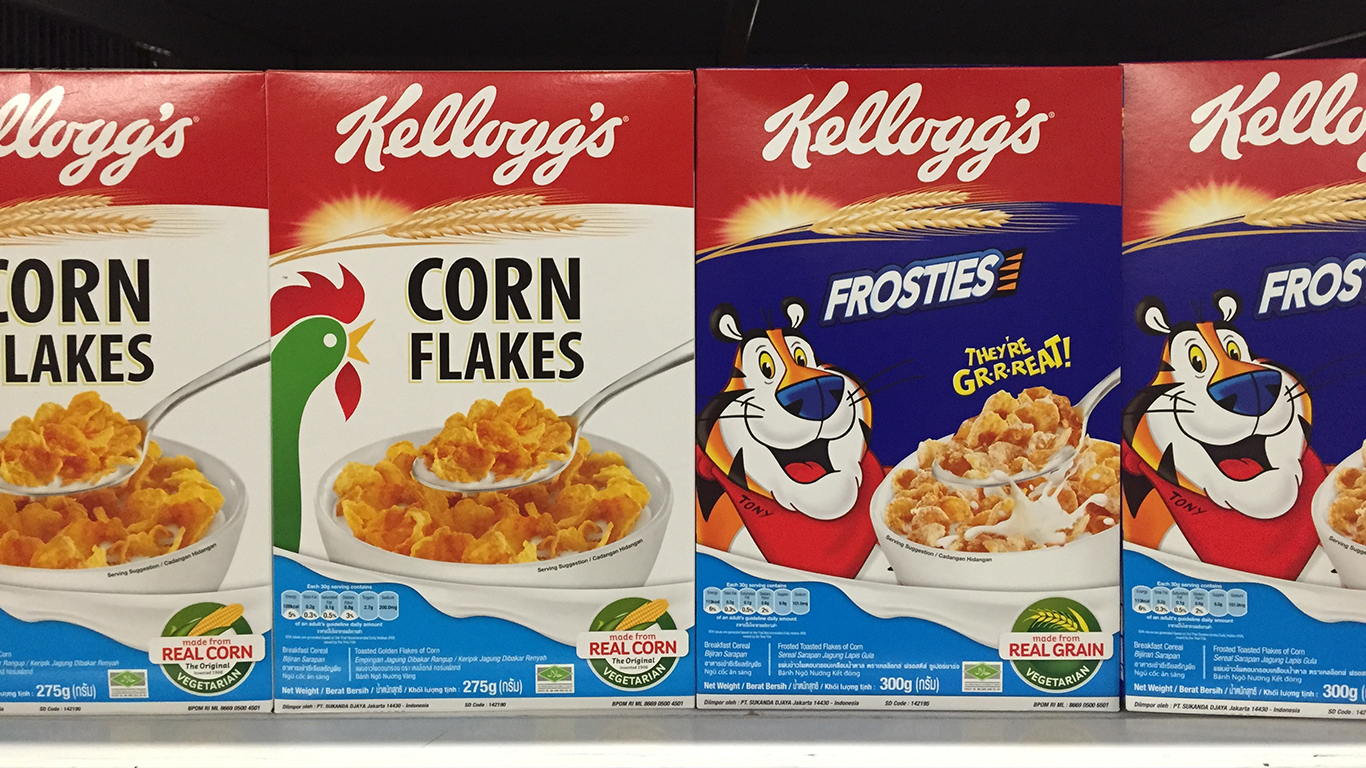Companies and Brands
Investors Build Positions in Kellogg

Published:
Last Updated:

One of the few large-cap companies with shares that have done reasonably well in the market crash is Kellogg Co. (NYSE: K). Wall Street has two things it likes about Kellogg. The first is that demand for inexpensive food with a long shelf life is robust. The other is that its yield is 3.58% ($2.28), and that dividend is unlikely to be cut.
Kellogg shares are off 7.6% over the past month, while the S&P 500 is down 19.8%. Many days, the gulf between the two is larger in favor of people and institutions who hold Kellogg shares. The stock also trades well above its 52-week low of $52.34, with a share price yesterday of $62.56. As the market cratered, Kellogg shares were down only 1.73%.
A look at the Kellogg product lineup shows that most are breakfast products, some of which do not spoil for months when stored properly. Among those that sell the best are Kellogg’s Corn Flakes, Special K and Pop-Tarts. Kellogg also sells frozen breakfast foods, particularly Eggos. It sells nutrition bars under the brand Nutri-Grain Bars as well.
Kellogg promotes its products as healthy, although for sugary cereals this has often been challenged. On the other hand, some of its products do have fiber and protein, which are staples of most people’s diets, regardless of the source.
Kellogg also has a food chain sourced from farms across much of the agricultural areas of the country. Its demand supports the economy of farmers of corn, rice, wheat and berries. These chains from farm to factory are unlikely to be affected much, as farms usually do not involve large concentrations of people who work in close quarters.
Kellogg earnings have been unspectacular but steady. Revenue has risen very modestly since 2016, and last year was $13.6 billion. Net income has been choppy. Last year, it was down to $960 million from $1.4 billion the year before. Kellogg has $397 million of cash on hand. Its long-term debt last year was $7.2 billion, down from $8.2 billion the year before. Net cash provided from operations was $1.2 billion last year. Free cash flow was $590 million. The risk to the Kellogg dividend is tiny.
Kellogg has been one of the unloved stocks among investors because of its very flat revenue. That does not count for much in a recession in which a company has products in great demand.
The average American spends $17,274 on debit cards a year, and it’s a HUGE mistake. First, debit cards don’t have the same fraud protections as credit cards. Once your money is gone, it’s gone. But more importantly you can actually get something back from this spending every time you swipe.
Issuers are handing out wild bonuses right now. With some you can earn up to 5% back on every purchase. That’s like getting a 5% discount on everything you buy!
Our top pick is kind of hard to imagine. Not only does it pay up to 5% back, it also includes a $200 cash back reward in the first six months, a 0% intro APR, and…. $0 annual fee. It’s quite literally free money for any one that uses a card regularly. Click here to learn more!
Flywheel Publishing has partnered with CardRatings to provide coverage of credit card products. Flywheel Publishing and CardRatings may receive a commission from card issuers.
Thank you for reading! Have some feedback for us?
Contact the 24/7 Wall St. editorial team.